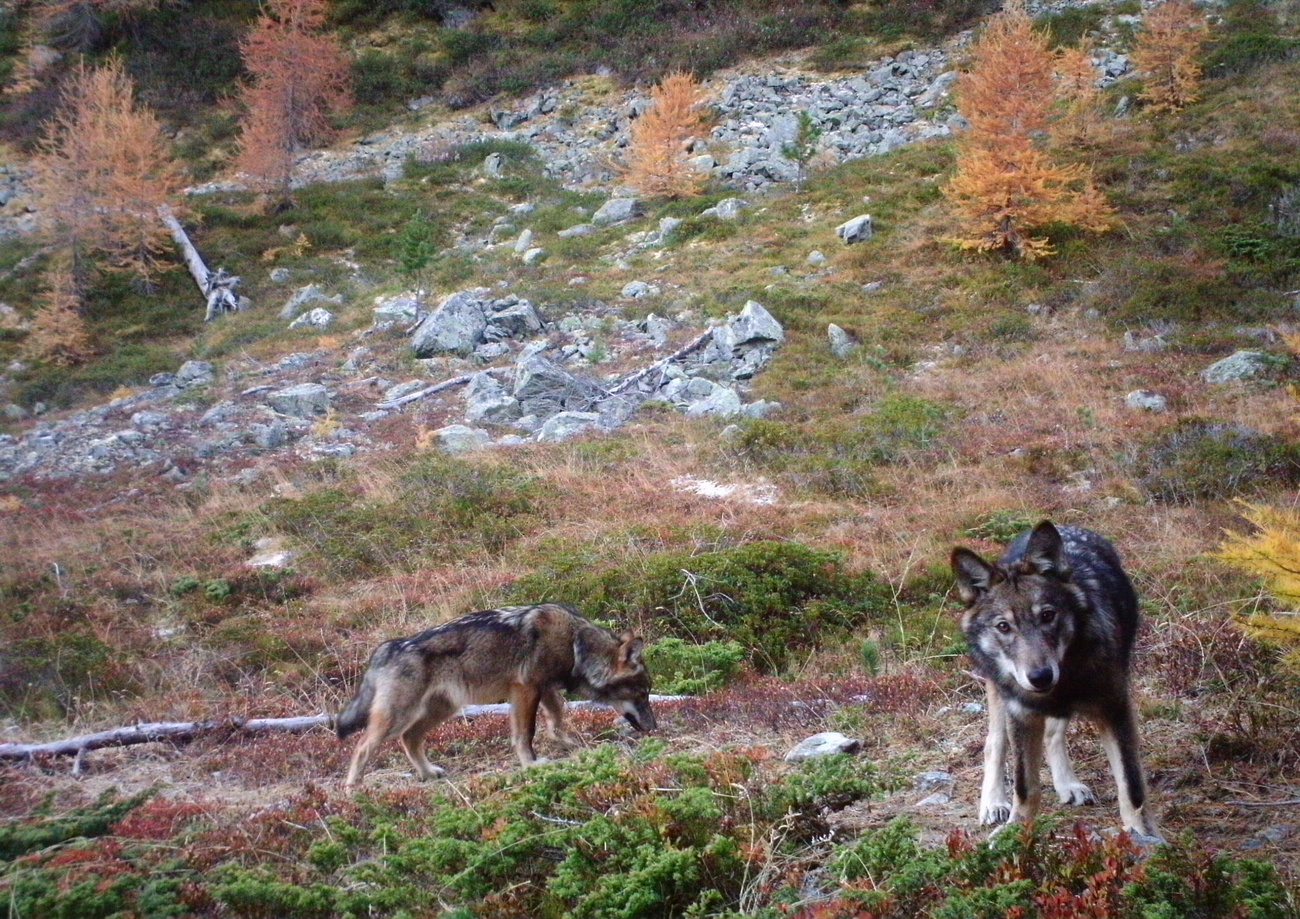
Swiss issue another green light to cull troublesome wolf pack

The Swiss authorities have granted a third canton permission to cull a problematic wolf pack responsible for attacks on sheep.
The Federal Office for the Environment (FOEN) decided on Monday that three young wolves from the Beverin pack in the southeastern canton of Graubünden can be shot but a breeding adult male should be spared. The cantons of Vaud and Valais each got clearance to kill wolves last week.
The green light for Graubünden comes in response to a request from cantonal authorities concerned by the increasingly bold behavior of these predators.
Bold behaviour
In a letter submitted on August 23, the Graubünden authorities noted attacks on sheep herds despite protection measures, an attack on a flock’s guard dog while the shepherdess was present, and an approach on hikers.
This is the second time that the Beverin pack is culled. In 2019, federal authorities had approved the shooting of four young wolves. Wildlife wardens were able to shoot three of them and a fourth was killed while crossing a road.
The shooting of wolves is intended to induce a change in behaviour within the pack, according to FOEN. If possible, it recommends shooting young wolves when they are among other members of the pack and in the vicinity of dwellings or herds of livestock.
There are currently about 130 wolves and at least 11 packs in Switzerland. Hunting rules were adapted on July 15, 2021 in consideration of the difficulties faced by regions with wolf populations, notes FOEN.
Last month, the Swiss Farmer’s Union sounded the alarm over the rise in the number of livestock attacks in Graubünden, Vaud and Valais, calling them a threat to the “Alpine economy.”
The KORA foundation, which monitors carnivores in Switzerland, estimates that wolves kill 300-500 sheep and goats per year.

In compliance with the JTI standards
More: SWI swissinfo.ch certified by the Journalism Trust Initiative




























You can find an overview of ongoing debates with our journalists here . Please join us!
If you want to start a conversation about a topic raised in this article or want to report factual errors, email us at english@swissinfo.ch.